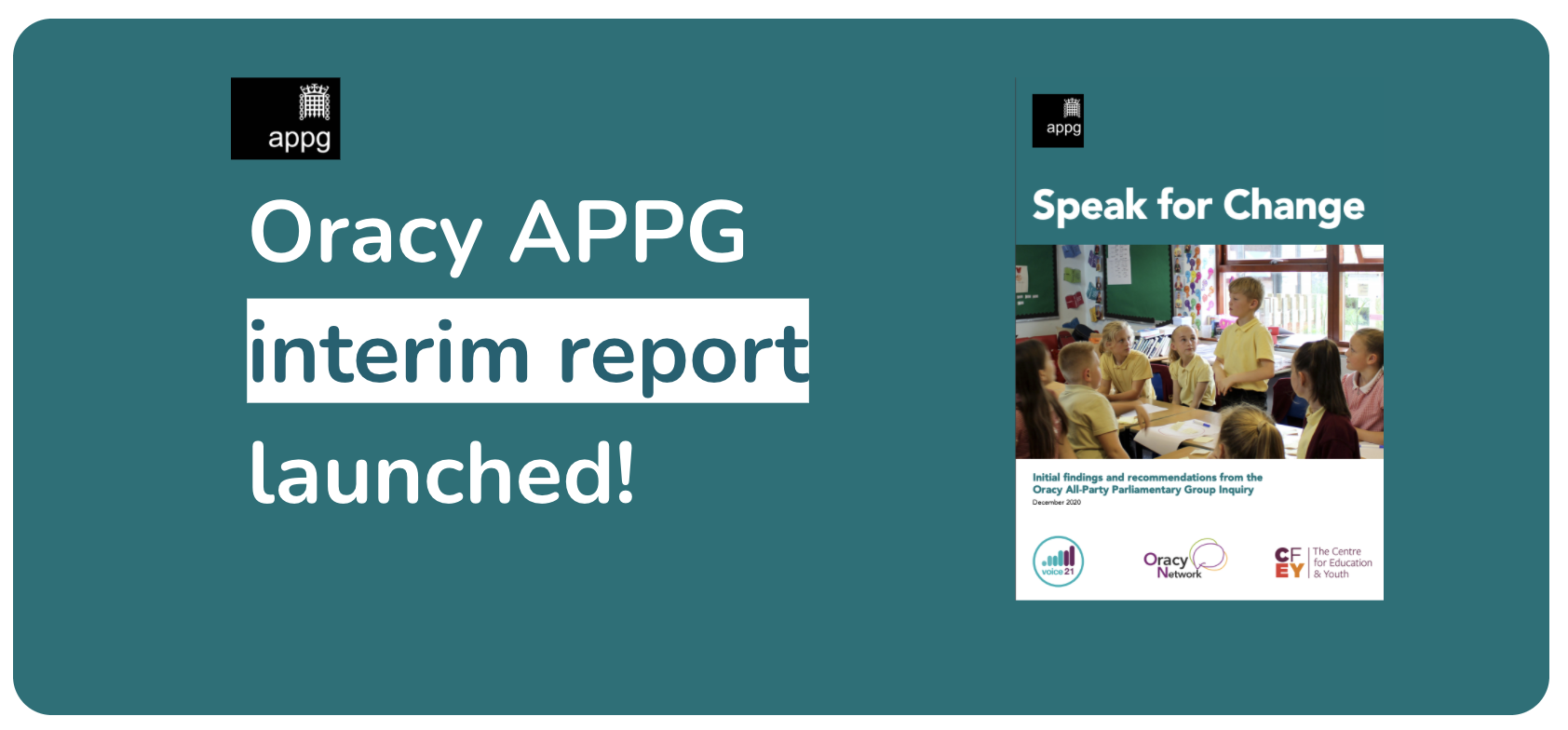Today, the Oracy All-Party Parliamentary Group (APPG) has released an interim report which highlights that young people have unequal access to opportunities to develop their oracy skills in schools in England. It emphasises the vital importance of developing students’ confidence and competence in spoken language, particularly as the disruption to children’s education over this past year is widening the already stubborn language gap.
Read our response and submission and download the interim report below.

Today the Oracy All Party Parliamentary Group have released the initial findings and recommendations of their Speak for Change inquiry. At the end of one of the most difficult terms teachers and school leaders have ever faced, in which they have continued to educate students against the odds, whilst also fulfilling a vital public health function, this report is more welcome than ever. As Emma Hardy MP explains, ‘oracy has always mattered, but it matters now more than ever […] Oracy offers an important means by which we can address the injustices worsened by the pandemic. A greater focus on oral language is proven to help the most disadvantaged students catch up.’
The interim report details many of the myriad ways schools are providing their students with a high quality oracy education, bringing to life the importance of oracy and its role in tackling disadvantage, as well as the transformative impact it can have on children’s learning and life chances. The report also notes, however that while many schools have developed innovative and effective oracy practice, oracy provision remains inconsistent both within and between schools. If then, as Voice 21 believes, a high-quality oracy education is the entitlement of every child, there is still much work to be done.
It’s been over half a century since Andrew Wilkinson first coined the term oracy, capturing the idea that, just like literacy and numeracy, oracy is an essential skill which can and should be taught. In the ensuing decades, oracy has not been consistently valued in the education sector; unfortunately the impetus generated by important initiatives such as the National Oracy Project of the late eighties and early nineties was not enough to anchor oracy at the heart of education policy.
In the last few years, however, a (not so quiet!) revolution has been gaining momentum in our schools. Increasingly, schools, motivated not by national policy considerations but by the needs of their students, are turning to oracy to set their students up for success both in school and in life. In 2017 we worked with 140 schools to empower them to provide their students with a high quality oracy education. In 2020 this has grown to nearly 760 schools across the UK. We welcome the publication of this interim report and hope that it firmly cements oracy both as a teachable skill and an effective tool for learning.
You can download the interim report here and read Voice 21’s submission to the inquiry here.
© 2024 Voice 21. Voice 21 is a registered charity in England and Wales. Charity number 1152672 | Company no. 08165798